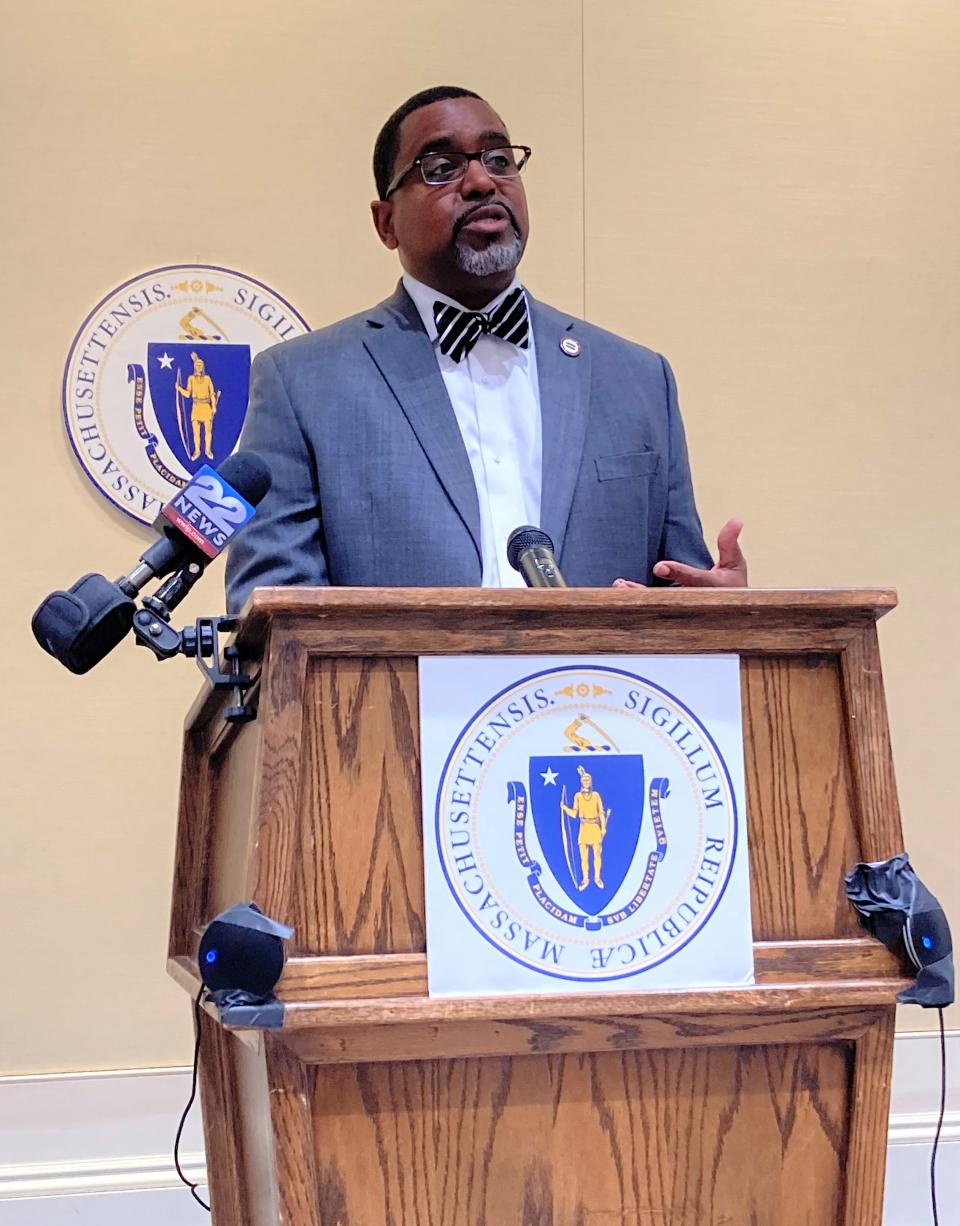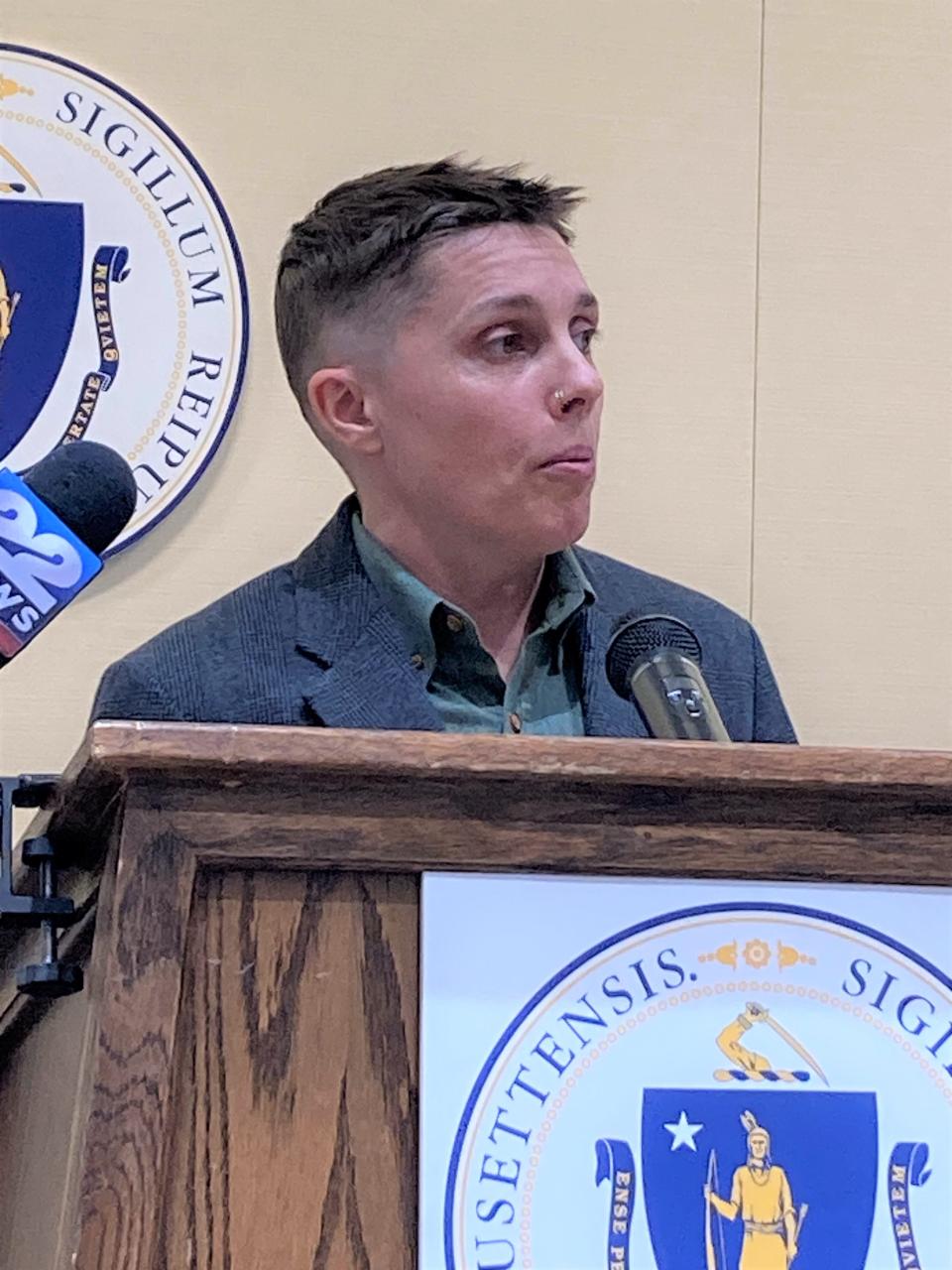How often should police use facial recognition technology? Mass. considering strict limits
BOSTON — One New Jersey man spent 11 days in jail when he was mistakenly identified as a suspect in an assault through the use of facial recognition technology.
A Detroit father was arrested at his home and spent 30 hours at headquarters after facial recognition technology identified him as a shoplifter wanted for stealing watches.

The incidents were recounted Thursday by Rashaan Hall, of the Urban League of Eastern Massachusetts, during a legislative briefing on a bill relating to facial recognition technology.
“These are the people whose lives were significantly disrupted by the faulty, unregulated and racially biased technology,” Hall said. “These stories put the flesh on the bones.”
Hall was one of three panelists attending the briefing to discuss a bill that would centralize all law enforcement use of facial recognition technology into the Massachusetts State Police. The measure was filed by Sen. Cindy Creem, D-Newton and Representatives Dave Rogers, D-Cambridge, and Orlando Ramos, D-Springfield.
Bill is the result of special commission on facial recognition
The bill culminates the work of the Special Commission to Evaluate Government Use of Facial Recognition Technology in the Commonwealth. The commission was formed in 2022 when former Gov. Charlie Baker amended facial recognition regulations included in the 2020 Police Reform Bill and returned them to the legislature for revisions.
“Only one entity in law enforcement should be allowed to possess and use facial recognition technology,” said Kade Crockford, director of the Technology for Liberty Project at the American Civil Liberties Union, and a member of the commission. “All of the participants agreed: the governor, the attorney general, the ACLU, the NAACP and the Massachusetts State Police.

“It may be the first time the ACLU and the state police have ever agreed about anything,” Crockford joked.
The bill also tweaks laws and regulations that were enacted with the police reform bill. These new regulations were described by panelists as “putting guardrails around the technology.”
The bill requires law enforcement officials to obtain a warrant showing probable cause before requesting the Massachusetts State Police analyze an image using facial recognition software. An exception would exist when life or health of the public is threatened.
Once police find a match, an arrest could only be made if there was other incriminating evidence. And it could only be used for investigating criminal activity, not for tracking ordinary citizens.
It professionalizes the process and includes training for the operators, Crockford explained. She urged that Massachusetts expedite the passage of the bill, noting that other states, Montana and Maine have already copied the state's work and passed measures of their own.
“We don’t want some random detective using the technology on their own,” Crockford said. “It is novel, invasive, potentially dangerous technology, with the potential to cause tremendous harm to individuals.”
Centralizing technology in one law enforcement division
Advocates said centralizing the process would also protect municipal police departments from high-pressure sales pitches by companies developing their own versions of facial recognition software. Under the bill, the only governmental agencies in Massachusetts allowed access to facial recognition software would be the State Police and the Registry of Motor Vehicles.
Even one of the early creators of facial recognition technology, Erik Learned-Miller, a computer science professor at UMass Amherst, was quick to point out its deficiencies. He said it can be 99% accurate, but only under ideal conditions, when the facial reader is not encumbered by sunglasses, hats, random shadows or dark, grainy images shot from unusual angles.
“In those circumstances, accuracy could drop to 1%,” Learned-Miller said.
In discussing the technology, Learned-Miller said there are applications where it is useful: opening a smart phone, sorting photographs stored on a computer, and in certain medical fields.
The technology failed the New Jersey man, Nijeer Parks, who faced a lengthy prison sentence before charges were dropped a year later, after he had provided proof, the image of a receipt from Western Union, that proved he was 30 miles away from the location of the crime at the time it occurred.
It failed Robert Williams whose family watched, helpless, as Detroit police arrested him.
“Racial bias is built into the software,” Hall said, adding it is Black and brown people and women who are matched the most. “When police are looking for suspects, it will be Black and brown people who will be the most targeted.”
The bill pertains only to governmental use of the technology and does not address similar technology used by private companies.
This article originally appeared on Telegram & Gazette: Police use of facial recognition could be limited under Mass. proposal

